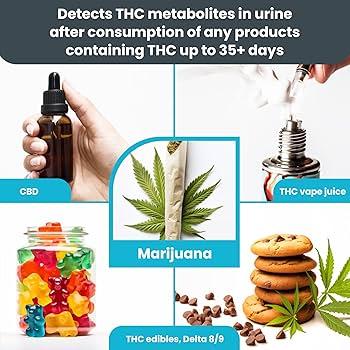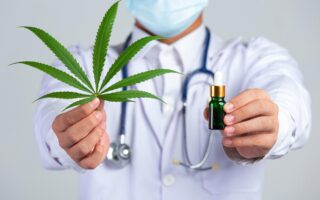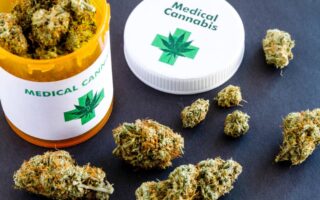Introduction: Navigating the World of THC: A Complex Journey Through Nature and Science
In the intricate tapestry of the cannabis plant, tetrahydrocannabinol, or THC, emerges as one of its most renowned threads. Often associated with a plethora of medical, recreational, and cultural implications, THC has captured the imagination of both the casual consumer and the dedicated researcher. As legalization sweeps through various regions, and societal perceptions shift, the conversation surrounding THC continues to evolve. This article embarks on a multifaceted exploration of this fascinating compound, delving into its chemical dynamics, therapeutic potential, legal landscape, and the myriad ways it intertwines with the human experience. Whether you are a curious novice or a seasoned connoisseur, join us as we unravel the complexities of THC and uncover what lies beneath the surface of this powerful molecule.
Table of Contents
- Exploring the Benefits and Risks of THC in Modern Medicine
- Understanding the Mechanisms of THC: How It Interacts with the Body
- Navigating Legal and Regulatory Landscapes Surrounding THC Use
- Informed Consumption: Tips for Responsible THC Use and Dosing
- Q&A
- In Retrospect
Exploring the Benefits and Risks of THC in Modern Medicine
In recent years, tetrahydrocannabinol (THC) has emerged as a focal point in discussions surrounding modern medicine, particularly due to its potential therapeutic advantages. Some of the notable benefits include:
- Pain Management: THC is known for its analgesic properties, making it a promising option for chronic pain relief.
- Appetite Stimulation: It can help stimulate appetite in patients undergoing treatments like chemotherapy.
- Anxiety and Stress Relief: Many patients report reduced anxiety levels and improved mood when using THC.
However, the use of THC in medicinal contexts does not come without its set of risks. Users may face potential side effects that could complicate their overall health. Some of these risks include:
- Cognitive Impairment: High doses of THC can lead to short-term memory loss and impaired cognitive function.
- Dependency Concerns: Regular use can lead to dependence or addiction in some individuals.
- Legal and Social Stigmas: Despite its medicinal benefits, the legal status of THC remains contentious in many regions, affecting patient access and acceptance.
Understanding the Mechanisms of THC: How It Interacts with the Body
At the core of THC’s effects lies its interaction with the endocannabinoid system (ECS), a complex cell-signaling system that plays a crucial role in maintaining homeostasis within the body. THC, or tetrahydrocannabinol, mimics the action of naturally occurring compounds called endocannabinoids. When THC binds to cannabinoid receptors, predominantly the CB1 receptors located in the brain and nervous system, it triggers a range of physiological responses. This binding process can affect various body functions, including mood regulation, pain sensation, appetite stimulation, and even memory processing. Understanding this interaction helps unravel the multifaceted effects of THC consumption, leading to both therapeutic applications and recreational experiences.
The effects of THC can vary significantly depending on individual biochemistry and the manner of consumption. Important factors include:
- Method of Ingestion: Inhalation vs. ingestion (edibles) can alter onset and duration.
- Dosage: Different dosages can lead to diverse reactions, from mild euphoria to intense psychoactive experiences.
- Individual Differences: Factors like genetics, prior cannabis exposure, and mental health can drastically influence how THC interacts with the body.
To illustrate the complexity of THC’s effects, consider the following table that outlines common outcomes based on various factors:
| Factor | Potential Effect |
|---|---|
| Method of Ingestion | Variable onset time; longer-lasting effects with edibles |
| Dosage Level | Low: relaxation; High: anxiety or paranoia |
| Individual Biochemistry | Different responses based on metabolism and ECS balance |
Navigating Legal and Regulatory Landscapes Surrounding THC Use
Understanding the shifting legal and regulatory landscapes surrounding THC use is essential for anyone interested in the potential of this compound. The laws governing THC vary significantly by region, making compliance a complex and often confusing issue. The following components play a critical role in navigating these waters:
- State Legislation: Examining individual state laws, which may range from complete legalization to strict prohibition.
- Federal Regulations: Navigating federal policies that can impact local statutes, particularly in how they handle hemp and THC derived from it.
- Licensing Requirements: Understanding the need for licenses in commercial ventures involving THC, including cultivation, distribution, and sales.
- Public Health Guidelines: Staying informed on health regulations that impact consumption, such as age restrictions and product safety standards.
The regulatory environment can also introduce a variety of challenges related to banking and taxation for businesses involved in THC. Due to federal laws, many banks hesitate to offer services to cannabis-related enterprises, compelling these businesses to rely on cash transactions, which raises concerns about security and transparency. To illustrate this disparity, consider the following comparison of potential banking options:
| Banking Option | Advantages | Challenges |
|---|---|---|
| Traditional Banks | Established systems and trust | Reluctance to work with THC businesses |
| Cannabis-Specific Banks | Experienced in THC regulations | Higher fees and limited services |
| Cash Management Services | Increased security for cash | Inconvenience and limited growth potential |
Informed Consumption: Tips for Responsible THC Use and Dosing
Engaging in responsible THC consumption starts with understanding your own body and its reactions to cannabinoids. Be aware of how various factors such as your weight, tolerance, and experience level can influence the effects of THC. Dosing can differ significantly between individuals, so it’s vital to consider starting small and gradually increasing your dose as you gain experience and confidence. Educational resources, including strain guides and dosage calculators, can offer insights tailored to your preferences. Additionally, pay attention to the method of consumption, as edibles, tinctures, and inhalables all have unique onset times and effects.
When consuming THC, it is equally crucial to create a positive environment that enhances your experience. Surround yourself with supportive individuals, and choose a setting where you feel comfortable and safe. Utilize a dosing journal to track your experiences, noting how different strains and amounts affect your mood, creativity, and general well-being. This record will empower you to make informed decisions about your consumption habits in the future. Here is a simple table to keep in mind for effective dosing:
| Consumption Method | Onset Time | Duration of Effects |
|---|---|---|
| Inhalation | Immediate | 1-3 Hours |
| Edibles | 30-90 Minutes | 4-6 Hours |
| Tinctures | 15-30 Minutes | 2-4 Hours |
Q&A
Q&A: Understanding THC in Today’s World
Q1: What is THC, and where does it come from?
A1: THC, or tetrahydrocannabinol, is the primary psychoactive compound found in the Cannabis sativa plant. It is one of over a hundred cannabinoids identified in cannabis, and it’s primarily responsible for the “high” that users experience. THC is produced in the flowering tops of female cannabis plants and can be extracted in various forms for medicinal or recreational use.
Q2: How does THC affect the human body?
A2: THC interacts with the body’s endocannabinoid system by binding to cannabinoid receptors located throughout the brain and body. This interaction can result in a range of effects, including euphoria, relaxation, altered perception of time, and increased appetite. However, it may also cause side effects such as anxiety, paranoia, or short-term memory loss in some individuals.
Q3: Is THC legal everywhere?
A3: The legality of THC varies widely across different countries and regions. In some places, THC is fully legal for both recreational and medicinal use, while in others, it may be permitted only for medical purposes or completely illegal. It’s essential to understand the specific laws in your area before using or possessing THC products.
Q4: What are the potential medical benefits of THC?
A4: Research indicates that THC may provide several medicinal benefits. It has been used to alleviate chronic pain, reduce muscle spasms in patients with multiple sclerosis, stimulate appetite in those undergoing chemotherapy, and help manage certain mental health conditions. However, it’s important to consult with a healthcare professional before using THC for medical purposes.
Q5: Can THC be harmful?
A5: While many people use THC without significant issues, it can be harmful in certain circumstances. Regular use, especially in high doses, may lead to dependence, and some individuals may experience negative mental health effects. Additionally, using THC in adolescence can impact brain development. Therefore, moderation and awareness are key.
Q6: What are the different forms of THC available?
A6: THC is available in various forms, including dried flower (bud), edibles (like gummies and baked goods), oils, tinctures, capsules, and concentrates. Each form has a different onset time and duration of effects, so users should be informed about how each method may affect them.
Q7: How does THC consumption differ from CBD?
A7: THC and CBD (cannabidiol) are both cannabinoids found in cannabis, but they have different effects on the body. THC is psychoactive and produces the “high” feeling, whereas CBD is non-psychoactive and is often used for its potential therapeutic benefits without the intoxicating effects. Many products contain a mix of both compounds to balance their effects.
Q8: What should I consider before trying THC for the first time?
A8: Before trying THC, it’s essential to consider several factors: your health and any underlying conditions, your local laws regarding its use, potential interactions with medications you may be taking, and your own personal history with substances. Starting with a low dose in a safe, controlled environment is generally recommended for first-time users.
In Retrospect
As we conclude our exploration of THC, it’s clear that this compound occupies a complex space within both the realm of medicine and the broader societal landscape. With its myriad effects, therapeutic potential, and the evolving legal status in many regions, THC continues to inspire both intrigue and debate. Whether you approach it with caution or curiosity, the nuances of THC remind us that the conversation surrounding it is far from settled. As research progresses and our understanding deepens, one thing remains certain: the journey through the world of cannabinoids is just beginning, inviting us to consider its implications for health, wellness, and our collective future.



